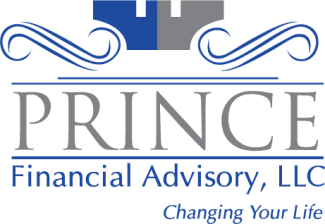
Planned Giving Goes Further
There are many ways that we support our favorite charitable causes. However, one of the most beneficial ways to support a favorite charity now and into perpetuity is through planned giving. While almost any larger nonprofit organization has an active planned giving program, it may come as a surprise that many smaller nonprofits are also eager to work with their donors on planned giving options. Before you make a commitment, be sure to check with the organization that you are interested in supporting to ensure that they can handle the type of planned giving option you are most interested in.
Before giving a gift, take some time to familiarize yourself with the different giving options available. If you do have significant assets you wish to give, it’s always best to consult with your accountant or financial planner prior to making a final decision.
There are three types of planned gifts that you can typically make. These are:
- Outright gifts that use appreciated assets as a form of cash
- Gifts that provide donors with income or other benefits in return
- Gifts that are payable to the charity upon the death of the donor
There are also numerous tax benefits available to those making planned gifts, such as the ability to take a deduction for the market value of the asset while not paying any capital gains tax when the asset is transferred. Gifts paid upon the death of the donor are also exempt from estate tax. The following are just a few ways that you can leave a planned gift to the charity of your choice:
- Bequests – One of the easiest ways to leave money is by simply naming the charity of choice in your will or living trust.
- Stocks, Bonds, and Mutual Funds – donating appreciated stocks and bonds can increase the impact of your donation while giving you significant tax savings.
- Life Insurance or Retirement Plans – Designating your favorite charity as a beneficiary of your life insurance or retirement plan is another easy way to ensure that your giving legacy will continue after your death.
- Charitable Gift Annuities – Charitable gift annuities allow you to make a sizeable donation to the charity of your choice. Once the donation is received by the organization, they in turn will provide you with a set income dependent on the amount donated. Be sure to check applicable state laws for charitable gift annuities as they vary from state to state.
- Donor Advised Funds – Creating a donor advised fund allows you to maximize any tax benefits immediately, while also ensuring that the organization you support today will continue to be supported in the future.
- Real Property – Real property can include land, buildings, or machinery, but be sure to check with the organization first, as not all nonprofits have the capacity to accept real property.
There are a lot of planned giving options available. Be sure to work with your financial advisor and your favorite charity to find the giving method most beneficial for your own situation.
*This content is developed from sources believed to be providing accurate information. The information provided is not written or intended as tax or legal advice and may not be relied on for purposes of avoiding any Federal tax penalties. Individuals are encouraged to seek advice from their own tax or legal counsel. Individuals involved in the estate planning process should work with an estate planning team, including their own personal legal or tax counsel. Neither the information presented nor any opinion expressed constitutes a representation by us of a specific investment or the purchase or sale of any securities. Asset allocation and diversification do not ensure a profit or protect against loss in declining markets. This material was developed and produced by Advisor Websites to provide information on a topic that may be of interest. Copyright 2025 Advisor Websites.

